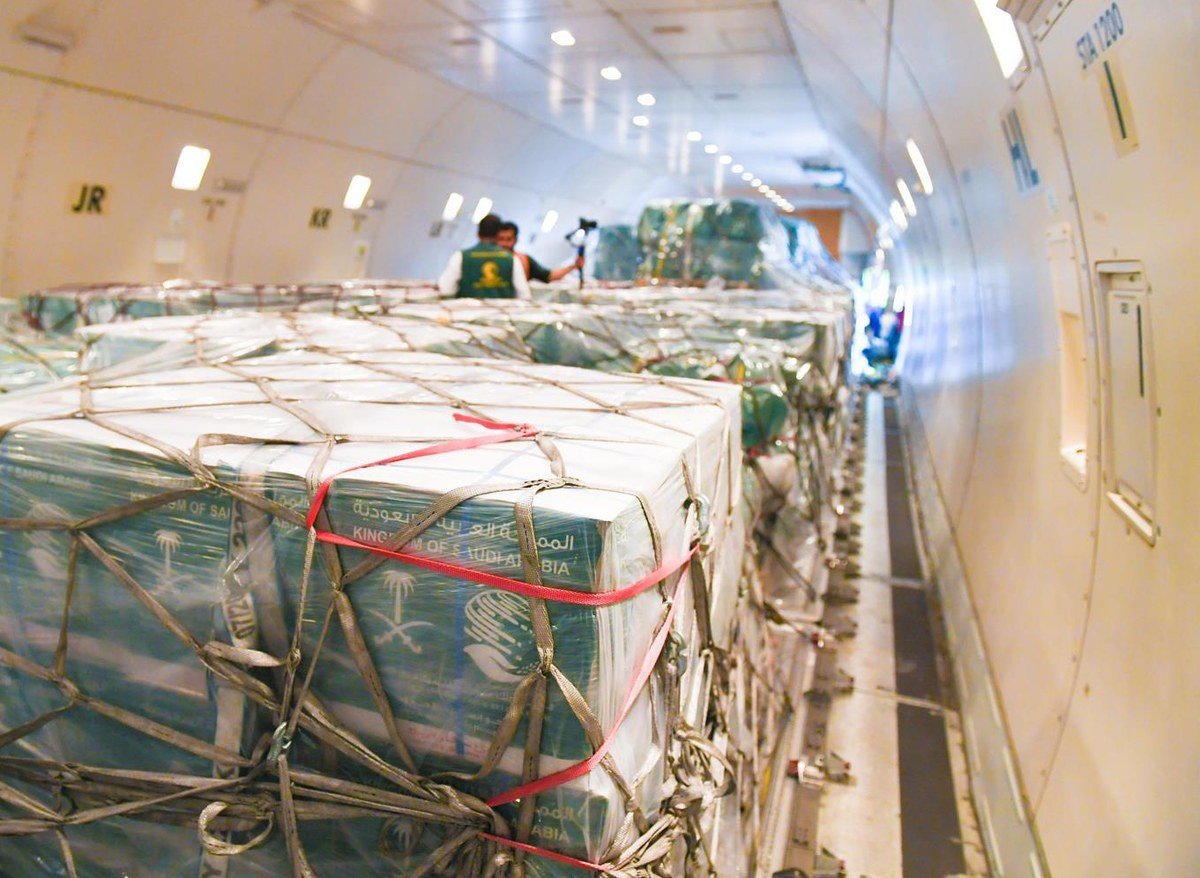 |
| The aid plane is part of a directive from Saudi leaders to KSrelief to provide food and shelter assistance to flood victims. (Source: SPA) |
The first Saudi aid flight departed from King Khalid International Airport in Riyadh to Benina International Airport in Benghazi on September 16, carrying 90 tons of food and relief supplies to be distributed to people affected by floods in Libya.
According to the SPA news agency, King Salman and Crown Prince Mohammed bin Salman recently instructed Saudi Arabia's aid agency KSrelief to provide food and shelter assistance to the victims. A specialized team from KSrelief will oversee the delivery of aid in coordination with the Libyan Red Crescent.
These efforts are part of the oil kingdom's humanitarian role in supporting countries in times of crisis and hardship, said KSrelief Supervisor General Dr. Abdullah Al-Rabeeah.
Unprecedented disaster...
Heavy rains from Storm Daniel caused heavy damage in eastern Libya on the evening of September 10, destroying two dams near the coastal city of Derna, sending water flooding into the valley. The Libyan Red Crescent said the death toll in Derna had reached 11,300 as of September 14 (local time). The death toll is expected to rise as about 10,100 people are still missing.
In comments to Al Arabia television on September 15, Derna Mayor Abdel-Moneim al-Ghaithi said the death toll could reach 20,000. According to local officials, thousands of people are still buried in the rubble or have been swept away by floodwaters into the Mediterranean.
According to Anadolu Agency, the floods caused by Storm Daniel are an unprecedented disaster in the Maghreb region, the Arab world or even the world in the 21st century. Seven days on, "the smell of death is in the air," said Ali Al-Ghazali, a resident of Derna.
Local and international rescue teams are working around the clock to search for bodies and possible survivors, said Tawfik Shoukri, spokesman for the Libyan Red Crescent.
Meanwhile, the International Organization for Migration (IOM) announced on September 15 that more than 38,640 people in northeastern Libya had to be evacuated from heavily flooded areas, including 30,000 people in Derna alone.
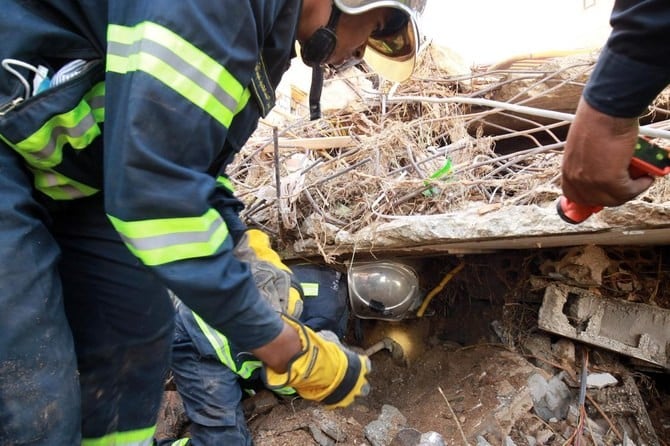 |
| Firefighters and rescuers search for survivors in the rubble of a collapsed building in Derna city on September 14. (Source: AFP) |
UN Under-Secretary-General for the Coordination of Humanitarian Affairs and Emergency Relief Coordinator Martin Griffiths said the impact of climate change and lack of emergency response capacity to disasters were the two main causes of the thousands of deaths in the worst flooding disaster in modern history in Libya.
At a press conference on the evening of September 15, Libyan Attorney General Sadeq Assour announced that he had established an investigation committee consisting of 26 members from many other agencies to investigate the cause of the collapse of two dams that led to the serious flooding disaster. The investigation will clarify the roles and responsibilities of individuals and organizations involved in the incident, especially concluding whether there were any violations.
A report by Libya's national audit agency released in 2021 found that the two dams, built in the 1970s, had not been maintained, despite the government spending more than $2 million on the purpose in 2012 and 2013.
Islamic Relief warned of a "second humanitarian crisis" following the floods, pointing to "increased risks of water-borne diseases and shortages of food, shelter and medicine". |
The solidarity of the international community
On September 14, the United Nations launched an appeal for more than $71 million to support hundreds of thousands of people in need, and to establish a maritime corridor for emergency relief and evacuation.
On the same day, Director-General of the World Health Organization (WHO) Tedros Adhanom Ghebreyesus said that WHO will allocate 2 million USD from its emergency fund to support the victims. Calling the floods in Libya a "catastrophe of large scale", Mr. Tedros stated that the health needs of the survivors are becoming more urgent, while the death toll is increasing.
Alongside condolences and pledges to stand by the Libyan people through the heartbreaking tragedy, the relief mission has accelerated with Türkiye, Egypt and the United Arab Emirates (UAE) among the first countries to step up aid to the North African country.
Two days after the disaster, Türkiye sent three planes carrying humanitarian aid, along with a rescue team and an 11-member medical team to Libya. Three military planes from the Egyptian armed forces carried medical supplies, food and a team of 25 rescue workers to join the relief operation in the neighboring country.
The UAE sent two aid planes carrying 150 tonnes of food, relief goods and medical supplies. Kuwait sent a plane carrying 40 tonnes of supplies, while Jordan sent a military plane loaded with food, tents, blankets and mattresses. Algeria deployed eight Algerian air force planes to transport essentials such as food, medical supplies, clothing and tents.
While the UK announced it would send an “initial aid package” worth £1 million ($1.25 million), Italy allocated €350,000 ($373,000) for initial assistance and sent three planes carrying equipment and rescue teams to Libya. Germany also sent two military transport planes carrying 30 tonnes of supplies, including tents, blankets, camping beds, etc. Norway pledged 25 million Norwegian kroner ($2.32 million) and stood ready to provide further assistance to help Libya deal with the disaster.
Japan is providing relief goods and food aid, worth about $700,000, which will be drawn from Japanese aid already available in Libya sent through the World Food Programme (WFP) earlier.
The Saudi Arabian aid flight on September 16 was the latest effort by the international community to share the hardships of Libya. It may take months, even years for the people of Derna to overcome the consequences of the disaster, but the pain of loss may take even longer to subside…
Source


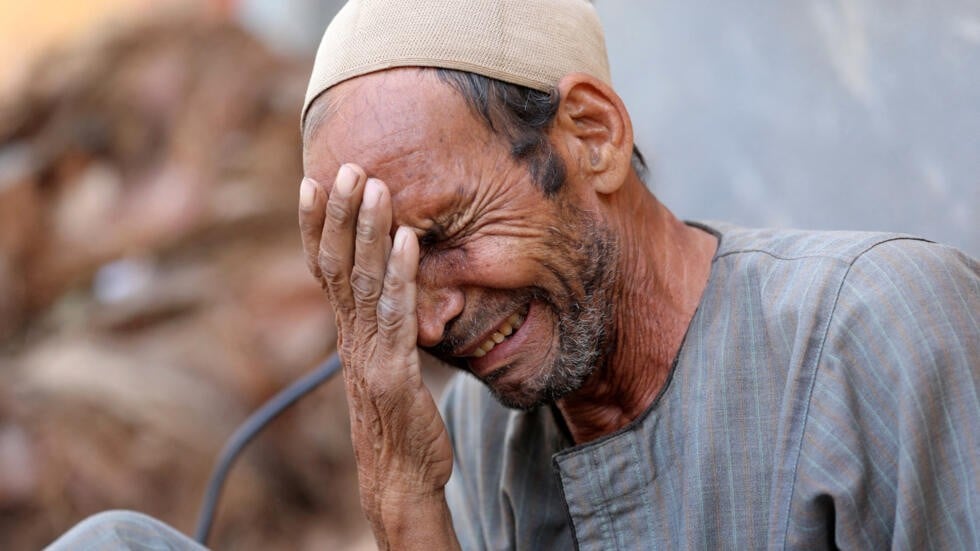










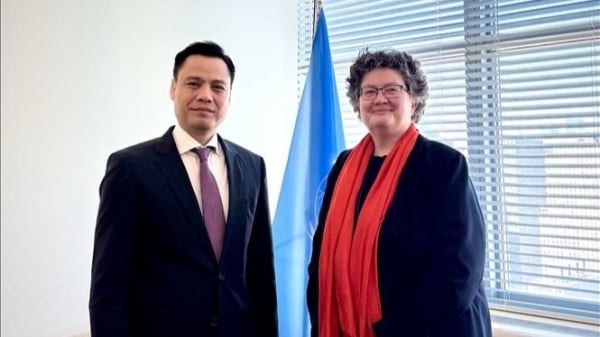




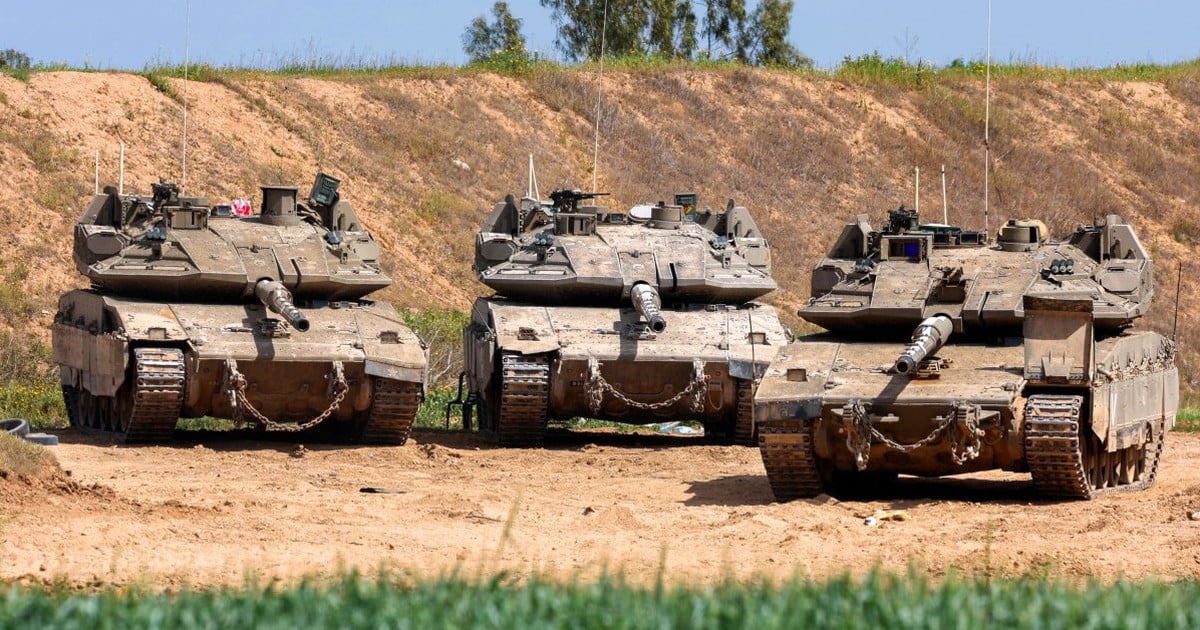








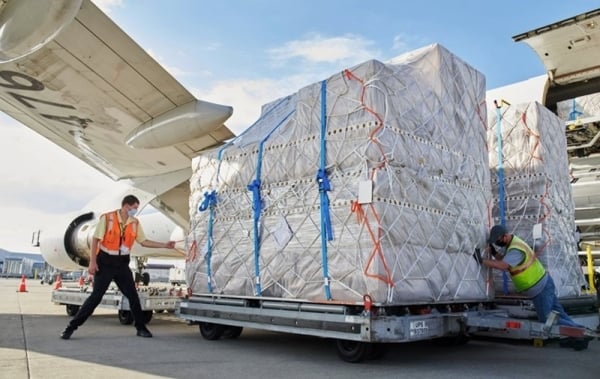






![[Photo] "Beauties" participate in the parade rehearsal at Bien Hoa airport](https://vstatic.vietnam.vn/vietnam/resource/IMAGE/2025/4/11/155502af3384431e918de0e2e585d13a)





























































Comment (0)